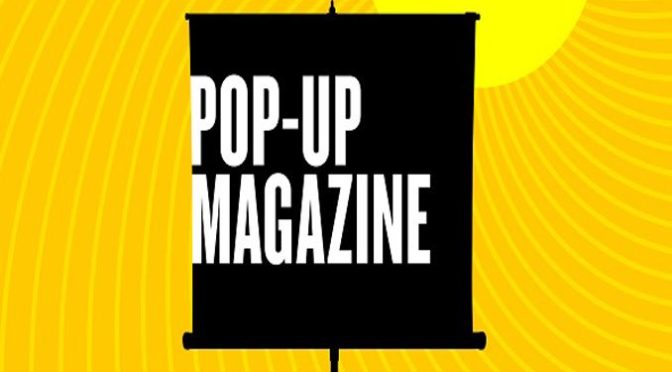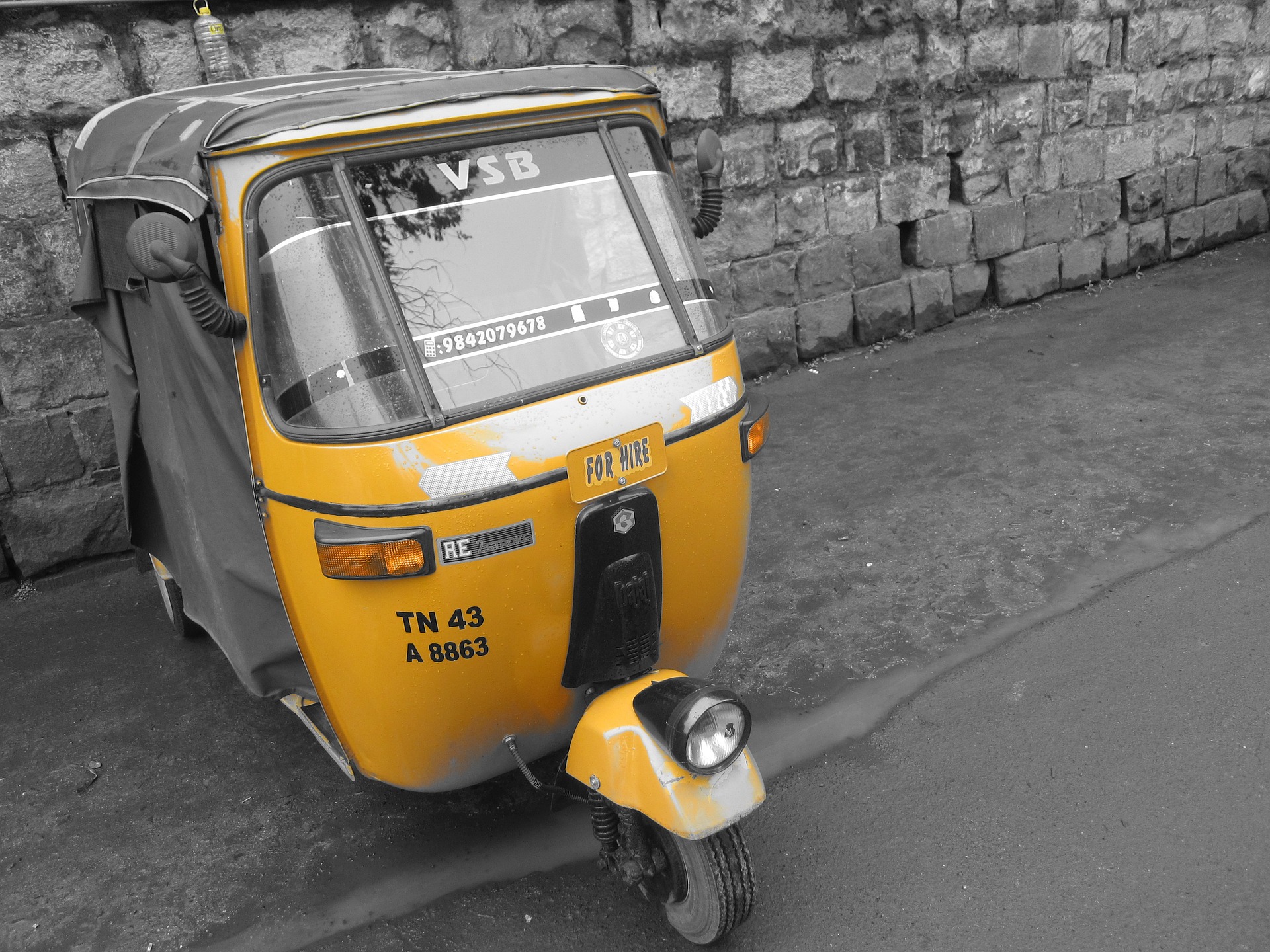Win two tickets to Pop-Up Magazine at the Paramount Theater in Oakland this Thursday, November 10: email “Pop Up” to wbutler@lighthouse-sf.org.
When we started LightHouse Interpoint this spring, we had a vision of a literary magazine featuring stories by the world’s best blind writers. So far we’ve published work by world travelers, parents, professors, journalists, and regular blind people who have something interesting to say.
The LightHouse has always imagined Interpoint being bigger than just online essays, though, and this week we’re proud to announce that we have an Interpoint story, written and edited by blind people, going on tour with Pop-Up Magazine. The piece premiered at the Los Angeles Ace Hotel Theater on Thursday night to a massive audience response, and will be performed on all the stops of Pop-Up Magazine’s November tour, which means you can see it live in San Francisco, Oakland, Chicago, Boston, and Brooklyn.
Below find the full tour schedule and links to buy tickets. More about Pop-Up Magazine:
Called “a sensation” by the New York Times and referred to by the SF Chronicle as “Fast-paced, loose, often funny, and wholly unpredictable,” Pop Up Magazine is a signature San Francisco event which takes the live storytelling of radio programs like This American Life to the next level: in the form of a live, unrecorded show. With events that have sold out venues such as Davies Symphony Hall and the Greek Theater in Berkeley, Pop-Up presents the highest calibre of storytelling with all the excitement of a live concert. This month, our writers will be sharing the stage with the likes of Ira Glass, Gillian Jacobs, Joshua Bearman and Mallory Ortberg, among many others.
A huge thank you to Pop-Up Magazine for collaborating so closely with the LightHouse to develop yet another unique, untold story in the Interpoint series. See you at the theater!
Pop-Up Magazine, Dates and Tickets:
11/3 – THE THEATRE AT ACE HOTEL – Los Angeles
11/9 – NOURSE THEATER – San Francisco



